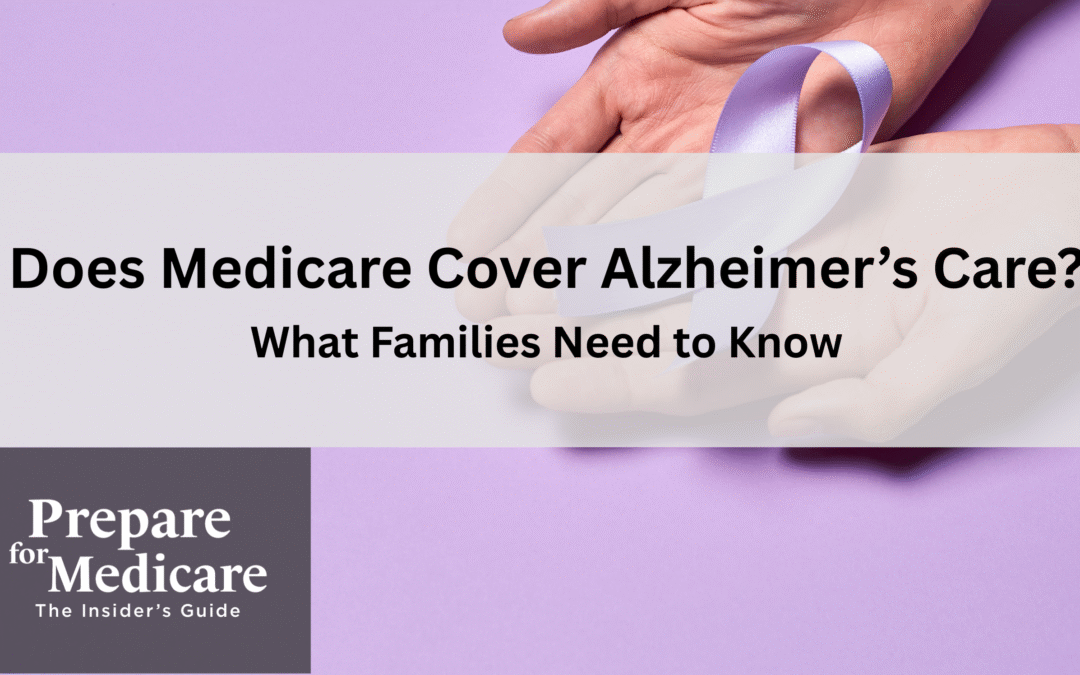“What does Medicare actually cover if my loved one has Alzheimer’s?”
That’s usually the very first question I hear after a diagnosis. And it’s a fair one. Alzheimer’s doesn’t just affect memory—it changes daily life, finances, and the type of care someone will need over time.
Let’s break down what Medicare does (and doesn’t) cover for Alzheimer’s, so you and your family can make informed decisions.
The Basics: What Medicare Pays For
Here’s the short version: Medicare covers medical care, not long-term custodial care.
- Hospital stays and doctor visits are covered.
- Durable medical equipment (like walkers or hospital beds) is covered when medically necessary.
- Skilled nursing care may be covered for up to 100 days after a qualifying hospital stay.
- Prescription drugs are covered under Part D (or through certain plans that bundle drug coverage).
But here’s the blunt truth: Medicare does not pay for long-term nursing home care. Families often get caught off guard by this. If you need 24/7 custodial care, that’s usually paid out of pocket, through long-term care insurance, or Medicaid. Be aware of common Medicare mistakes families make when planning for care.
Screenings, Wellness Visits, and Care Planning
Medicare does a decent job of covering preventive and planning services.
- Annual wellness visits include a health risk assessment where early signs of Alzheimer’s might get flagged.
- After a confirmed diagnosis, Medicare covers care planning sessions. These give you and your family a roadmap—treatment options, community resources, even clinical trials.
Think of this as your “game plan” appointment after the diagnosis.
Hospice Care Coverage
If Alzheimer’s progresses to the point where your loved one is nearing the end of life, Medicare does cover hospice care. That includes services at home, in a nursing facility, or in a hospice center.
New Alzheimer’s Drug Coverage
Here’s the newsworthy part. Medicare has recently expanded coverage for new Alzheimer’s drugs once they receive FDA approval.
Coverage may come with conditions, like participation in a clinical trial or a registry. That’s been a sticking point for some families and advocacy groups who feel it creates unnecessary barriers. But it’s the way Medicare balances safety and access for new treatments. You can read more about recent Medicare changes that could affect coverage.
Bottom line: these drugs could be available under Medicare Part B, but expect red tape along the way.
What Medicare Advantage Offers
If you’re on Medicare Advantage (Part C), you may see additional options.
- Some plans include Special Needs Plans (SNPs) built specifically for dementia and Alzheimer’s care.
- These can sometimes help coordinate care better than Original Medicare.
Keep in mind: not every area has these plans, and benefits vary.
You’re Not Alone
More than 5 million Medicare beneficiaries are living with Alzheimer’s. Medicare has established systems in place—so when you call, you’re not starting from scratch.
But remember, coverage has limits. Medicare handles the medical side, but families still need to plan for custodial care and support.
Takeaways for Families
- Don’t assume nursing home care is covered—it isn’t.
- Use care planning visits to get ahead of the curve.
- Keep an eye on new drug approvals and Medicare rules.
- Find Medicare doctors near you to support ongoing care.
Alzheimer’s is overwhelming, but knowing what Medicare does and doesn’t pay for helps you make clearer decisions—before you’re in crisis mode.




